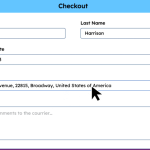Business now has to communicate faster, smarter and more efficiently to remain 1-2 steps ahead of your competitors in the digital economy. Customers are not prepared to wait days to get a response, they will more likely than not pick up the phone and call a person in real time where the follow up is normal.
This has further accelerated the introduction of smart automation tools especially such as the more popular platforms like WhatsApp automation.
There are more than 2 billion WhatsApp users in the globe, but WhatsApp goes beyond personal messaging. The platform is literally an automatic business destination in such locations as Banglore, India, Southeast Asia, and Latin America. This is however, not enough as one needs to have a WhatsApp number. Automation of WhatsApp is increasingly utilised in business to maximise responsiveness speed, reduce the level of manual effort, and improve the efficiency of client communications on a grand scale.
With the help of the WhatsApp automation, the business will have an opportunity to automate ordinary messages, two-way communication between business and the customer, and integration of the platform with its CRM, order management, or appointment booking systems. The final result will be faster activities and working flow- also on the channel that the customer feels comfortable working with on a daily basis.
Understanding WhatsApp Automation
As the businesses grow in size, there grows quantity of communication that the businesses have. It might not be viable to handle such communication on manual terms especially when doing over large scale. It is there that the automation will occur.
What It Means to Automate WhatsApp
WhatsApp automation turns sending and getting messages and responding to messages based on the rules that have been set in advance using software and APIs. It has reminders, alerts and reminders amongst others.
Key Drivers of WhatsApp Automation in Workflows
The increase in the amounts of WhatsApp automation is not only a trend. It is being powered by quite tangible business necessities. These benefits can be quantified in terms of improvement of service delivery and cost reduction.
Streamlining Customer Communication
It is not uncommon for many businesses to receive hundreds of customer messages in a single day. Automation allows you to confirm orders, changes in appointments and policies in seconds, providing you with the opportunity to not have to respond to the same message multiple times.
Real-Time Response and Support
Customers want speed. Automation can support a business to respond to frequently asked questions and increase customers satisfaction, while also reducing bounce rates.
Enhanced Workflow Integration
Automated WhatsApp can be integrated with business tools, such as Shopify, Google Sheets, or CRMs, providing the ability to automate business responses using triggers such as an order update or a lead capture form.
Common Use Cases for WhatsApp Automation
There are so many use case for automation with WhatsApp, and they extend far beyond e-commerce, it has been automating many day-to-day tasks in the medical field. The following are some of the use cases demonstrating this versatility.
Appointment Scheduling and Reminders
Automation can be used in healthcare clinics, salons, and coaching centres just for appointment and reminder checking. This will help with time management and reduce cancellations.
Abandoned Cart Recovery
For online shops, the automation can help remind users of their abandoned carts or what they left behind. A timely message may motivate them to go back and complete the transaction.
Order and Delivery Updates
For customers, getting the statuses of their orders is an added benefit. WhatsApp automation can aid them in tracking orders and updating statuses in real time, where enquiries decreased.
Customer Feedback and Surveys
Surveys after purchase or after service can be activated on WhatsApp. Timely feedback enables companies to get better and remain in touch with their clientele.
The Role of Chatbots in WhatsApp Automation
Automation in WhatsApp tends to be done through chatbots. They allow valuable discussions that are not dependent on a human being, being available 24/7.
Types of WhatsApp Chatbots
Chatbots can be of two main types: rule-based chatbots that operate on predetermined response paths and AI based chatbots that comprehend natural language and respond to it. Businesses have a choice in the use case, complexity and scale of either.
Broadcast Campaigns and Targeted Messaging
Marketing has turned out to be more individual and time-bound. These objectives can be realised through automation on WhatsApp where business entities can connect with huge audiences effectively.
Delivering Personalised Outreach at Scale
Companies are also able to schedule promotions, reminders or notifications of thousands of users using segmented lists and pre-formatted templates. Such messages may contain names, current activity, or favourite as this has high chances of attracting a response.
Coexistence: App and API Together
One of the new features of the present day is the possibility to use both WhatsApp Business App and Cloud API together (on the same number).
How Hybrid Use Supports Business Needs
Such coexistence enables small business to keep chatting with customers manually through the app, but automating notifications and reminders or marketing messages through the API. It provides the breadth of tailored individual interaction with the productivity of machine automation.
Benefits Across Business Functions
Automation is most useful in marketing as well as support, but other business functions can make use of it as well. Its effects may be organisational.
Use Cases Across Departments
Automation can take care of follow-up of leads in the selling field. In finance, it is able to transmit payment confirmation. HR departments can employ it in the form of an interview scheduling tool or channel it in the form of sending the onboarding reminders. Each department has the possibility to create workflows to enhance speed and reliability.
Security, Privacy, and Compliance
Any medium, which manages customer data, needs to do it responsibly. The structure of WhatsApp aids in the security of communication, but the companies should also remain cautious of data activities.
Responsible Automation Practises
The messages should all be opt-in messages, which include the promotional ones. The businesses should also make sure that they offer simple opt-out option and comply with the laws such as GDPR or Indian Data Protection Bill. The customer details are to be kept safely and API access must be secure.
The Future of WhatsApp in Business Workflows
Due to technological development, WhatsApp will become an even more connected service in the digital business operation. It is not a support tool in itself; it is more of a complete communication channel.
Where WhatsApp Automation Is Headed
WhatsApp use is already present with the ability to use the app in terms of catalogue, in-chat payments, and smart processes. Such additions as voice-based bots, built-in applications, and more integrated CRM systems have the potential to turn WhatsApp into a platform hub of business communication in the future.
Conclusion
The WhatsApp automation is not just a shortcut of sending messages. It is a change in business mindset, in communication, efficiency and customer experience. Incorporating automation into the current process will enable organisations to meet the business demands of customers without overworking themselves. Having the solutions at hand to control the output of white label broadcasting or to support queries and real-time triggers, now businesses have everything they need to take an advantage of WhatsApp as not only the communication tool, but rather as workflow engine. The future does not mean quicker responses. It is about smarter workflows, and they are based on platforms that customers like and know.







